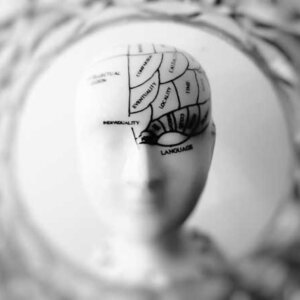While it may seem foolish to consider taking the ‘Am I stupid test,’ there are moments when satisfying our curiosity about it could be worthwhile. In a world filled with constant comparisons and self-reflection, it’s natural to occasionally wonder about our own intelligence. Are we making the right decisions? Are we as smart as we think we are? These questions often lead us to seek self-assessment tests, and one intriguing query that has captured the curiosity of many is, “Am I stupid?”
Find out by clicking the start quiz button
Question
Your answer:
Correct answer:
Your Answers
Purpose of the “Am I Stupid Test”
The “Am I Stupid Test” isn’t just about labeling yourself as “smart” or “stupid.” It serves a more profound purpose in the realm of self-evaluation. This test is not a definitive measure of your intelligence but rather a tool that can provide valuable insights into your perception of your own abilities.
This article will be your guide through the journey of self-assessment, helping you navigate the intricate terrain of self-perceived intelligence. So, let’s embark on this exploration and discover what the “Am I Stupid Test” is all about.
When to Consider the “Am I Stupid Test“
Facing Life Changes
Life is full of changes, both big and small. Some of these changes can trigger questions about our own intelligence. Consider starting a new job, entering college, or facing personal challenges. During these transitional periods, individuals often find themselves pondering their own capabilities.
Seeking Self-Reflection
Curiosity about one’s intelligence isn’t limited to major life events. Many people simply seek self-reflection as a means of personal growth and understanding.
Embracing Self-Reflection with the “Am I Stupid Test”
In the pursuit of self-awareness and personal growth, taking the “Am I Stupid Test” can be a valuable tool. It’s essential to emphasize that self-reflection is a valid and meaningful reason to embark on this self-assessment journey.
Self-Improvement through Self-Assessment
Self-improvement is a goal cherished by many individuals. They strive to become better versions of themselves, both personally and intellectually. For those committed to personal growth, taking a test like “Am I Stupid” can serve as a pivotal starting point. One of the key benefits of self-assessment is gaining insight into your self-perceived strengths and weaknesses.
Setting Goals for Improvement
Once you have a clear understanding of your self-perceived strengths and weaknesses, you can start setting goals. Personal growth enthusiasts often use their test results as a roadmap for improvement. It’s a practical way to identify areas that need attention and chart a course for self-enhancement.
Working on Weaknesses
Nobody is perfect, and everyone has areas where they can improve. The “Am I Stupid Test” can identify those areas where you may feel less confident or capable. This identification is not a judgment but an opportunity for growth. By acknowledging weaknesses and actively working on them, individuals can make substantial progress in various aspects of their lives.
Celebrating Strengths
On the flip side, the test can also affirm your strengths. Knowing what you excel at is just as important as recognizing areas for improvement. Celebrating your strengths can boost self-esteem and provide a sense of accomplishment, further fueling your personal growth journey.
Deciphering the “Am I Stupid Test“: Understanding its Mechanics
The Format of the Test
The “Am I Stupid Test” often presents an intriguing blend of questions and scenarios aimed at exploring your self-perceived intelligence. Understanding its typical format is the first step to comprehending how it works.
Types of Questions and Scenarios
This test doesn’t rely on a single format; instead, it offers a variety of question types. You might encounter multiple-choice questions, situational assessments, or even hypothetical scenarios. The diversity in question styles is intentional, designed to provide a comprehensive view of your self-assessed intelligence.
Subjectivity in Results
One crucial aspect to grasp is that the results of the “Am I Stupid Test” are inherently subjective. They are heavily influenced by your personal perception of intelligence. This means that two individuals with the same level of cognitive ability may receive different scores due to their varying self-esteem, mood, or confidence levels.
Illustrating Mood and Context Impact
Consider this scenario: On a day when you’re feeling confident and well-rested, you might tackle the test with gusto and rate your intelligence higher. Conversely, on a day when you’re stressed or fatigued, your self-assessment might lean towards a lower intelligence rating.
For example, a question about solving a complex puzzle could yield different answers based on your mood. On a good day, you might approach it with confidence and select a challenging option. On a less favorable day, you might doubt your abilities and opt for an easier solution.
The Role of Self-Perception
The “Am I Stupid Test” fundamentally relies on your self-perception. It delves into how you see yourself in terms of intelligence. This introspective aspect is essential in understanding your relationship with your own cognitive abilities. It’s not about measuring your intelligence objectively; instead, it’s about gauging how you feel about your intellectual capabilities.
Delving into the Concept of Self-Perception
Understanding the “Am I Stupid Test” necessitates delving into the intricate world of self-perception. Unlike traditional intelligence tests that aim to provide an objective assessment of cognitive abilities, this test primarily measures how you perceive your own intelligence.
Subjectivity as a Central Theme
Subjectivity is the cornerstone of this self-assessment. Your perception of your own intelligence is influenced by a myriad of factors, making it a deeply personal and subjective experience.
Influences on Self-Perception
Several factors can shape your self-perception of intelligence. Past experiences, both positive and negative, leave imprints on your self-image. External feedback from peers, family, and society can also sway your perception. Societal expectations and stereotypes about intelligence further compound the complexity of how you see yourself intellectually.
The Importance of Honesty
As you embark on the “Am I Stupid Test,” one crucial element stands out: honesty. To glean meaningful insights from this self-assessment, it’s imperative to answer the test questions honestly.
Seeking Authentic Self-Reflection
Being truthful with oneself is the bedrock of authentic self-reflection. It involves examining your own mind without distortion or pretense, acknowledging both strengths and weaknesses, accepting them, and using them as a springboard for growth.
It’s Not About the Score, It’s About Self-Awareness
Lastly, it’s essential to reiterate that this test is not a competition to achieve a high score. It’s not a race to outshine others. Instead, it’s a journey of self-discovery and awareness.
The True Value of the “Am I Stupid Test”
The true value of the “Am I Stupid Test” lies in the insights it offers about your self-perception. It’s an opportunity to examine how you view your own intelligence and how that perception impacts your confidence, decision-making, and personal growth. By embracing the subjectivity of this test and answering its questions with honesty, you open the door to a deeper understanding of yourself, your capabilities, and your potential for growth. Ultimately, it’s not about the test itself; it’s about what you learn about yourself along the way.
The Pitfalls of Self-Assessment
Self-assessment can be a double-edged sword. While it offers insights into our self-perception, it’s crucial to be aware of the common biases and misconceptions that can skew the results.
Biases and Misconceptions
Confirmation Bias: We tend to seek and interpret information in ways that confirm our existing beliefs. In self-assessment, this can lead to an inflated sense of competence in areas we’re familiar with and an underestimation of our capabilities in unfamiliar domains.
Overconfidence Bias: Many individuals overestimate their abilities in various aspects of life, from driving skills to intelligence. This overconfidence can distort self-assessment results.
Imposter Syndrome: On the flip side, imposter syndrome can make us underestimate our abilities, even when we are competent. This self-doubt can cloud our self-perception.
The Dunning-Kruger Effect
The Dunning-Kruger effect is a cognitive bias in which people with low ability at a task overestimate their ability. In essence, they lack the competence to recognize their own incompetence. This effect can significantly impact self-evaluation, leading individuals to inaccurately assess their intelligence.
Taking the “Am I Stupid Test”
When taking the “Am I Stupid Test,” follow these steps:
Find a Quiet Space: Choose a quiet and distraction-free environment where you can focus on the test.
Read the Instructions: Carefully read the test instructions to understand the format and purpose.
Answer Honestly: Approach each question with honesty. Don’t overthink or second-guess yourself. Trust your initial instincts.
Avoid Time Pressure: While there may be a time limit, try not to rush through the questions. Take your time to consider each one.
Interpreting Your Results
It’s essential to remember that the “Am I Stupid Test” results are not definitive. They are tools for self-reflection, not absolute measures of your intelligence.
Interpretation Scale
Self-Awareness: If your score indicates that you’re in touch with your self-perceived intelligence, it suggests a healthy level of self-awareness.
Room for Improvement: If the test points out areas where you might underestimate your abilities, it indicates potential areas for personal growth.
Self-Confidence Boost: Conversely, if your results show that you have a higher self-perception of intelligence, it might boost your self-confidence.
What If I Get a Low Score?
If you receive a low score on the “Am I Stupid Test,” don’t be disheartened. Remember, it’s a subjective self-assessment. In short, low scores can serve as a starting point for improvement. Use the insights gained from the test as a catalyst for personal growth. Seek opportunities to enhance your skills and knowledge in areas where you feel less confident. Self-awareness, coupled with a commitment to improvement, can be a powerful combination on your journey of self-discovery and self-improvement.
Reacting Constructively to a Low Score
Receiving a low score on the “Am I Stupid Test” can be disheartening, but it’s important to remember that the purpose of the test is not to judge your intelligence but to encourage self-reflection. Here’s how to react constructively to a low score and shift your focus toward self-improvement and personal growth:
Stay Calm and Objective: First and foremost, maintain your composure. A low score doesn’t define your worth or potential. Take a deep breath and approach the situation with objectivity.
Recognize Subjectivity: Understand that the test’s results are subjective and influenced by various factors, including mood, confidence, and self-perception. Your score doesn’t reflect your true capabilities.
Avoid Self-Criticism: Resist the urge to engage in self-criticism or negative self-talk. Be kind to yourself and remember that everyone has areas where they can improve.
Identify Areas for Growth: Instead of dwelling on the low score, focus on the specific areas where you feel less confident. What skills or knowledge do you want to improve? Identify these areas as opportunities for growth.
Set Realistic Goals: Establish realistic and achievable goals for self-improvement. Break down your larger objectives into smaller, manageable steps. This approach makes progress feel more attainable.
Seek Learning Opportunities:
Look for educational resources, courses, books, or mentors that can help you gain knowledge and skills in the areas you wish to improve. Continuous learning is a powerful tool for personal growth.
Embrace Challenges: Don’t shy away from challenges or new experiences. Embrace them as opportunities to expand your abilities and gain confidence.
Track Your Progress: Keep a record of your efforts and achievements. Tracking your progress provides a sense of accomplishment and motivates you to continue your self-improvement journey.
Stay Positive: Maintain a positive mindset throughout your journey. Surround yourself with supportive individuals who encourage your growth and believe in your potential.
Practice Self-Compassion: Be kind and patient with yourself. Understand that personal growth takes time, and setbacks are a natural part of the process. Treat yourself with the same compassion you would offer to a friend facing a similar challenge.
Celebrate Small Wins: Acknowledge and celebrate your successes, no matter how small they may seem. Each step forward is a testament to your commitment to self-improvement.
Seek Feedback: Don’t hesitate to seek feedback from others who can provide constructive insights and guidance on your journey to self-improvement.
Remember that self-improvement is a lifelong process, and everyone has room to grow and develop. A low score on a self-assessment test can be the catalyst for positive change, leading you toward a more confident and capable version of yourself. Embrace the journey, and keep your focus on personal growth rather than dwelling on perceived shortcomings.
Concluding Thought
In conclusion, our exploration of the “Am I Stupid Test” has revealed several essential insights for self-assessment and personal growth.
We’ve
- Delved into the concept of self-perception, recognizing that this test primarily measures how you perceive your intelligence rather than offering an objective assessment.
- Discussed the influence of biases, such as confirmation bias and overconfidence bias, as well as the intriguing Dunning-Kruger effect, which can impact self-evaluation.
- Provided step-by-step guidance on taking the “Am I Stupid Test,” underlining the importance of honesty and authenticity in your responses. We’ve also discussed how to interpret the results, emphasizing that they are not definitive but intended for self-reflection.
- Explored how to react constructively to a low score, emphasizing self-improvement and personal growth over dwelling on perceived shortcomings.
A Tool Among Many
It’s vital to remember that the “Am I Stupid Test” is just one tool among many available for self-assessment. It serves as a mirror reflecting your self-perception, offering a glimpse into your beliefs about your intelligence. However, it’s not the sole determinant of your worth or capabilities.
Use Your Results as a Starting Point
As you embark on your journey of self-discovery and personal development, consider the “Am I Stupid Test” as a starting point. Your results can be a catalyst for positive change, an opportunity to focus on self-improvement, and a reminder that personal growth is a continuous and worthwhile pursuit.
So, embrace your self-reflection, acknowledge your subjectivity, and commit to growth. As you use your results to set goals, seek knowledge, and expand your horizons, you’ll discover that your potential for personal development knows no bounds. Ultimately, it’s not about where you start; it’s about the path you choose to follow and the person you become along the way.
FAQ (Frequently Asked Questions)
What is the “Am I Stupid Test”?
A: The “Am I Stupid Test” is a self-assessment tool that aims to gauge how individuals perceive their own intelligence. It presents a series of questions and scenarios for respondents to answer, providing insights into their self-perception of their cognitive abilities.
Is the “Am I Stupid Test” a legitimate measure of intelligence?
A: No, the “Am I Stupid Test” is not a legitimate measure of intelligence like standardized IQ tests. It primarily measures self-perception and is subjective in nature.
How can I access the “Am I Stupid Test”?
A: You can find versions of the “Am I Stupid Test” online through various websites and apps. Simply search for it on your preferred search engine or app store.
What should I do if I get a low score on the test?
A: If you receive a low score, don’t be discouraged. It’s important to remember that the test results reflect your self-perception and are not definitive. Use a low score as a starting point for personal development and self-improvement.
Can biases affect the results of the “Am I Stupid Test”?
A: Yes, biases such as confirmation bias, overconfidence bias, and the Dunning-Kruger effect can influence how you perceive your own intelligence and, consequently, your test results.
How do I answer the test questions honestly?
A: To answer honestly, approach each question without overthinking or trying to provide socially desirable answers. Trust your initial instincts and be authentic in your responses.
Are there any other self-assessment tools I can use alongside the “Am I Stupid Test”?
A: Yes, there are many self-assessment tools available for various aspects of personal development, including personality assessments, emotional intelligence tests, and skills assessments. It’s beneficial to explore a variety of tools to gain a well-rounded view of yourself.
Is personal growth and self-improvement possible based on the “Am I Stupid Test” results?
A: Absolutely. The “Am I Stupid Test” can be a catalyst for personal growth. Use your results to identify areas for improvement, set goals, seek learning opportunities, and track your progress on your journey toward self-improvement.
Should I share my test results with others?
A: Sharing your test results is a personal choice. Some individuals find it beneficial to discuss their results with a trusted friend, mentor, or therapist for additional insights and guidance. However, it’s entirely up to you whether or not you choose to share your results.
How often should I take the “Am I Stupid Test”?
A: There’s no set frequency for taking the test. Also, you can take it as often as you like, but it’s essential to remember that self-perception can change over time. Repeatedly taking the test may provide insights into how your self-perception evolves.







